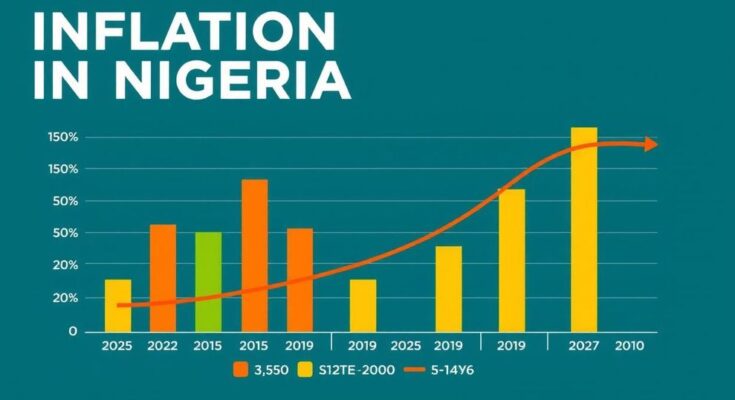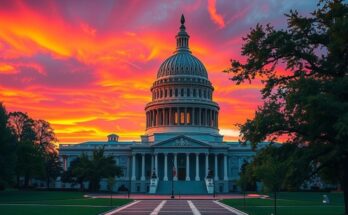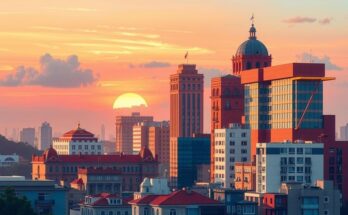Borno State has been identified as the most expensive in Nigeria as of May 2025, with an inflation rate of 38.9%. Niger, Plateau, and Abuja follow, reflecting significant food inflation and economic challenges. A report highlights inflation’s effects across the country, demonstrating that while the national average eases, some states continue to face severe cost increases.
Recent findings from the National Bureau of Statistics (NBS) reveal a concerning trend in Nigeria’s living costs, with Borno State claiming the title of the most expensive state. The inflation data for May 2025 indicates that Borno leads with an all-items inflation rate of a staggering 38.9%. When compared to the previous year, food inflation in the state has skyrocketed to 64.4%, primarily due to ongoing security challenges and disruptions in agricultural activities.
Following Borno, Niger State is now ranked second with inflation at 35%, showing a considerable jump from its previous third position. This inflation spike can be attributed to persistent disruptions in transport and supply chains, worsened by insecurity which impedes food distribution. Plateau State occupies the third position, with a headline inflation rate of 32.3% and experiencing an unusual situation of food deflation, although other costs such as transportation continue to drive up prices.
Abuja, the Federal Capital Territory, is in fourth place with a headline inflation rate of 31.1%. This is despite a general decline in the overall inflation; a significant increase in food prices has contributed to a 26.7% food inflation figure. Oyo State sits in the fifth position with an inflation rate of 28.9%, elevated by the rising costs of food despite some recent improvements in accessibility.
Nasarawa and Taraba states rank sixth and seventh, with 27.4% and 26.5% inflation rates respectively. Taraba, in particular, faces severe agricultural supply challenges leading to the highest food inflation rate nationwide at 38.6%. Cross River State follows closely with a 26.1% inflation rate, spurred by an alarming 11.1% month-on-month growth in food inflation due to supply chain interruptions.
Edo and Benue states round out this unfortunate list, both facing inflation rates of 26.0% and 25.0% respectively. The rise in food prices in Edo state comes despite a slight decline in overall inflation. In Benue state, recent violent disruptions have negatively impacted local agriculture, contributing to the continued rise in living costs. These findings highlight a stark contrast in economic stability within the country, with several states still grappling with high inflation rates even as the national average shows signs of easing. The Central Bank of Nigeria may need to intervene to address these disparities across states.
In conclusion, the latest NBS report underscores the high inflation rates across various Nigerian states, with Borno State leading the pack at 38.9%. The growing cost of living directly impacts residents, thanks largely to food inflation and persistent security challenges affecting agriculture. As some states struggle far more than others, a coordinated approach from the Central Bank may be pivotal in addressing these inequalities and aiding in economic stabilization.
Original Source: www.legit.ng




